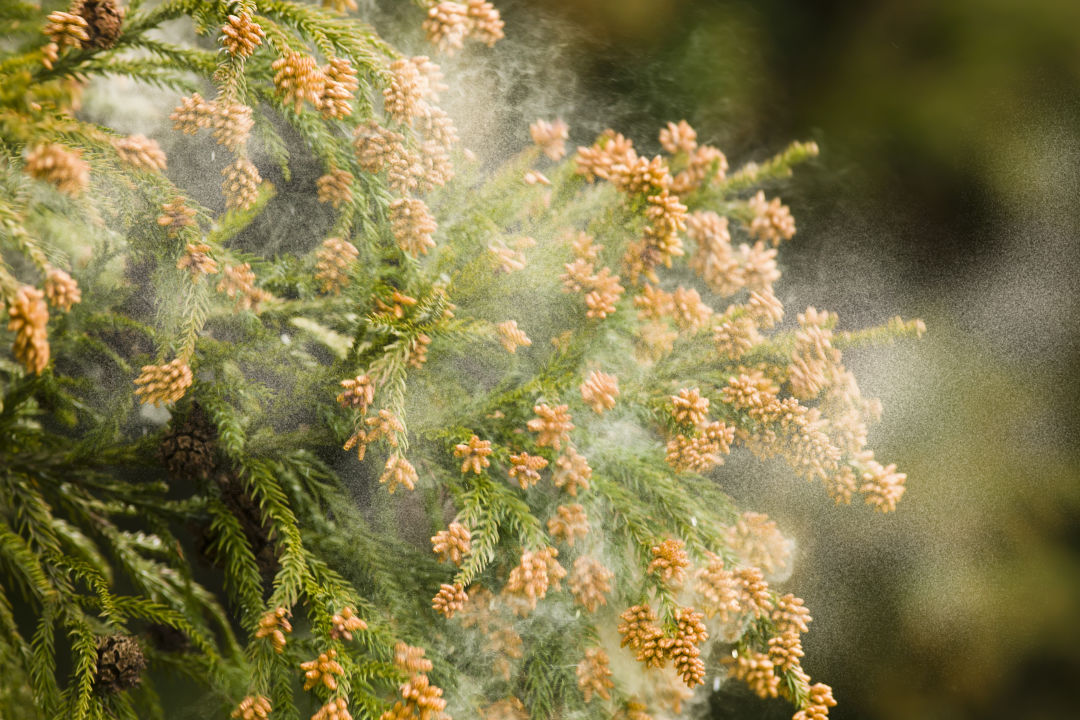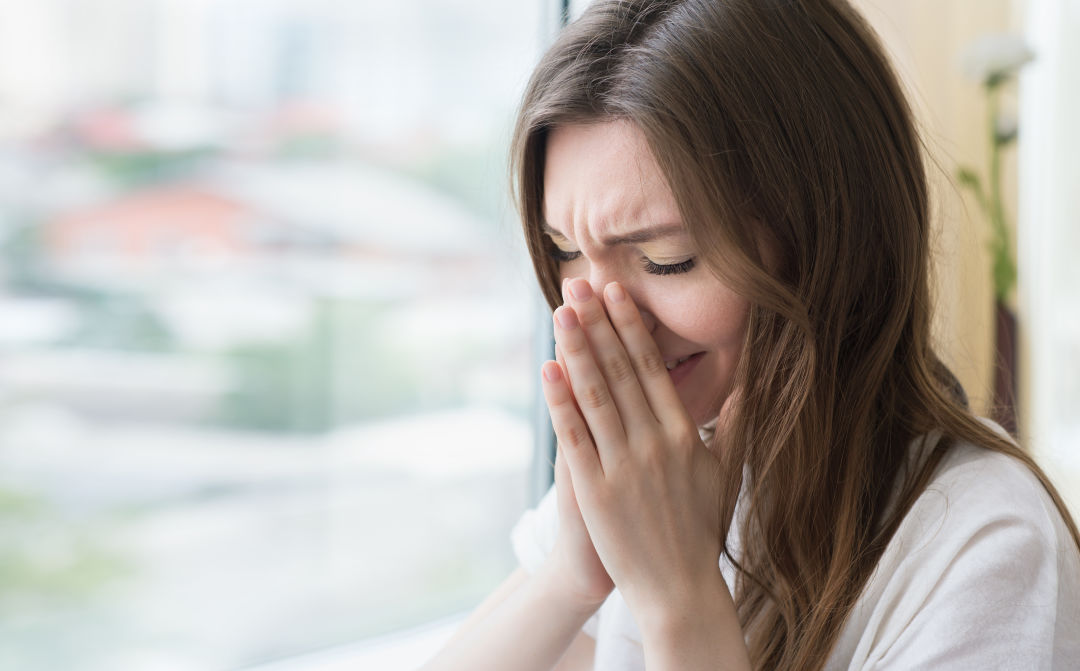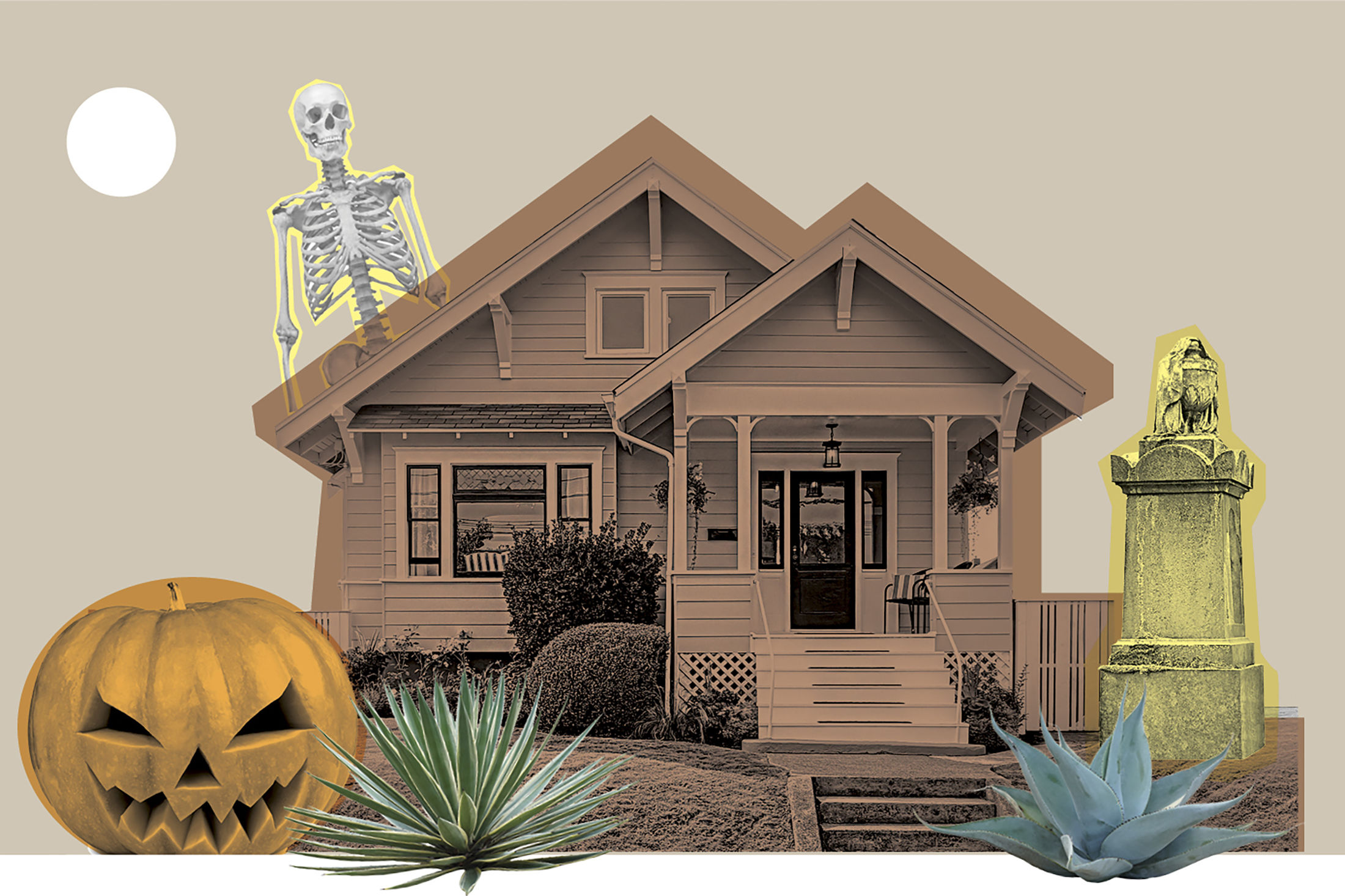Why Your Allergies Are Terrible Right Now

Cedar pollen at work.
Image: Shutterstock
If we spent too much time thinking about every particle in the air we breathe, we would all quickly suffocate. One prime member of the motley band, the cedar pollen pictured above. And if you live in the Houston area, chances are, traces of it are resting in your nasal passages right now. For those of us without a sensitivity to cedar, that's just sort of gross. But for those with an allergy, it can mean misery. And this year may be your biggest bummer yet.
According to Dr. J. Cary Moorhead, president of Texas ENT Specialists, because of record-high temperatures, more plants that cause sensitivities are currently thriving. January and February are typically bad news for those allergic to cedar pollen, he says, but those with additional allergies are getting a double whammy because of record-high temperatures. "We're seeing a lot of the pollens we see later in the spring," he says. "We're starting to see a little oak pollen that we normally wouldn't see [at this time of year]."
Because of pleasant temps, Houstonians are also venturing out to the great outdoors of the Hill Country and to the Austin area, where there are more cedars than there are here. "They're the ones getting hit the hardest," says Moorhead.

Sublingual immunotherapy may help you to stop sneezing.
Image: Shutterstock
But there's more. If you've ever lived up north, you may wonder why your allergies are worse living in Texas than they were in colder climes. It's probably not the greenery. Likely, you're allergic to mold, and as Moorhead explains, our warm, humid climate means that it doesn't die in winter, giving us the brief respite it does in other regions. But with the uncommon warm winter this year, at least you're probably getting outside. That means while you're soaking up the cedar, you're thankfully spending time away from dust, cockroaches and other perennial allergens in your house.
If your own home is a trigger, cleaning out the grime and bugs will go a long way to helping you feel better. Washing yourself and your furry friends will help, too, as you and your pet are probably bringing pollens inside with you.
But what if your office is the problem? If it's colleagues' perfume or harsh industrial cleaners, it's not actually an allergy, but nonallergic rhinitis. If that's the case, you're sensitive to the chemical, not allergic to it, though your body is releasing immunoglobulins that cause pretty much the same reactions of itchy eyes and runny nose.
But if your problem is an allergy, there are options. You may have already tried limiting your exposure to the outdoors or cleaning out your ductwork or suggesting they do so at the office. The next step is to try oral medications or nasal sprays. If those don't work, Moorhead suggests immunotherapy. Even 10 years ago, that almost certainly meant regular allergy shots, which meant not only the discomfort of needles but the inconvenience of frequent doctor visits. But Moorhead and his team prefer sublingual immunotherapy, a series of drops that patients can administer at home. He doesn't recommend the treatment for food allergies, but says that it's highly effective in keeping sensitivities to pollen, grasses, dust and dander at bay for the long term.
And for Houstonians, the ability to avoid the needles but still potentially become allergy-free or close to it is especially appealing. "The thing that really get Houstonians is that with the warm weather year-round we just never really get a break," sighs Moorhead. Unless you do something about it.




